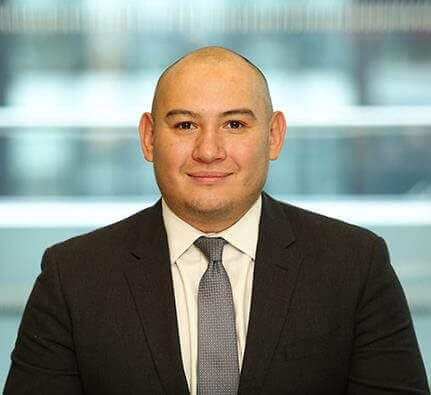Placements, placements and unregistered placements: an application to authorise the deprivation of liberty of a child and subsequent authorisation of an unregistered placement
-
Market Insight 01 February 2024 01 February 2024
-
UK & Europe
-
Healthcare
Clyde & Co have successfully supported an NHS Trust (the “Trust”) with an application to the High Court for permission to invoke the court’s inherent jurisdiction to deprive a vulnerable 14-year-old child (“X”) of her liberty while a suitable placement was found by the Local Authority.
Background
X arrived at the Emergency Department of the hospital in October 2023 detained under s.2 of the Mental Health Act 1983 (“MHA”). During her detention X presented with severe behavioural difficulties; in the months leading up to her detention X had become increasingly violent including direct assault on her parents. X had also started to place herself at risk of sexual association with older individuals, consuming alcohol and taking a constellation of illicit drugs.
Whilst detained X was violent towards staff. X’s behaviour was a profound cause for concern necessitating her seclusion, restraint and sedation. X’s mental health was assessed by doctors from a health body. This assessment determined that medication had little positive effect and that X’s behavioural difficulties were not rooted in any mental health disorder. Finally, it was determined that X’s inpatient admission to a paediatric ward at the Trust was likely to be contrary to her therapeutic needs.
X continued to reside in a separate room at the Trust whilst supervised by three professionals to ensure her and staff’s safety. Her detention under s.2 MHA was due to end in November 2023 and due to a lack of suitable alternative placement the Trust applied for authorisation by the High Court to permit them to continue to deprive X of her liberty.
Application
Clyde & Co prepared the evidence and applied to the Court for an Order to deprive X of her liberty to ensure her ongoing safety. The application included the preparation of a detailed restraint plan for X by the Trust.
The application was initially heard by Her Ladyship Justice Knowles who agreed that it was in X’s best interest to deprive her of her liberty while a suitable placement was found. The Local Authority, X’s parents and the local CAMHS were also added as parties to proceedings as well as a court appointed guardian to act on behalf of X. Following the application by the Trust, the matter went before the court on three further occasions.
The final hearing took place in December 2023 before HHJ Moradifar. The Trust were represented by Asma Nizami of Doughty Street Chambers. X, through her guardian was represented by Gemma Kelly of 1GC, Martin Downs of 1 Crown Office Row represented the parents and Kerrie Croxford of 5 Pump Court represented the Local Authority.
Judgment
At the final hearing the Local Authority confirmed they had found a placement. HHJ Moradifar found that X’s deprivation of liberty should continue and authorised the Trust’s transfer and restraint plan which included the use of physical restraint, manual restraint and (if required) the use of sedation.
In brief, there was irrefutable evidence that X’s welfare demanded that she be moved from the Trust and was placed in the proposed placement. There was therefore no option but to approve the continuation of the existing restrictive regime that had previously been approved by the court to ensure X’s safety.
Given X’s significant behavioural difficulties and high likelihood of her absconding HHJ Moradifar found that threshold criteria pursuant to s 38(2) of the Children Act 1989 was crossed. Namely that X must be placed in the interim care of the Local Authority under an interim care plan.
X was subsequently successfully transferred out of the care of the Trust and into an unregistered placement and the care of the Local Authority.
Case commentary
This case highlighted the difficulties Trusts face when suitable placements for children cannot be identified quickly by the Local Authority. X was an individual identified as having no medical need, who had to remain in hospital and X’s presentation was very disruptive to the day-to-day operation of the ward. However, in light of her violent outbursts and safeguarding risks, in the absence of a suitable placement the Trust was left with no option but to apply to the Court to deprive her of her liberty.
In a practical sense, this case reinforced the importance of knowing when applications to deprive people of their liberty should be made. In his judgement HHJ Moradifar praised the Trust for its efforts to keep X safe despite the significant challenges that this has presented to the Trust.
The Trust and their dealings with X was not a unique set of circumstances; routinely Trusts are inappropriately being used as interim “placements” whilst the search for something more long term takes place. X is one of many children who are the subject of similar applications before the Courts involving children due to a lack of available options.
This case demonstrated the national shortage of suitable placements and the issue this presents to Trusts, Local Authorities and families. Without a suitable placements children are increasingly being lost in the ever-increasing gaps between services that are provided through different public bodies. This results in Trusts accommodating children in circumstances where it is not in their interests to be on a ward and adding to the strain on already strained NHS services.
Clyde & Co's healthcare group is recognised for its extensive industry knowledge, offering a range of legal services covering public and private sectors as well as inquests, advocacy, professional regulation, product liability and pharmaceuticals / life sciences. Should we be able to assist you, please do contact one of our experts.
End

